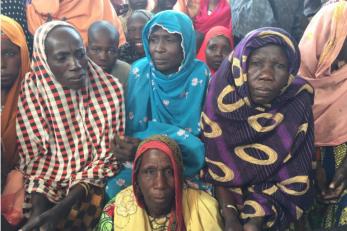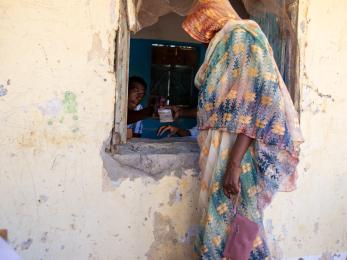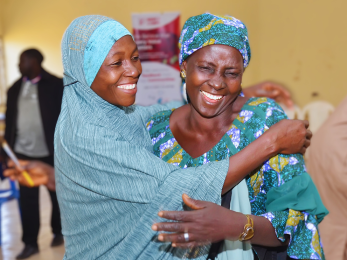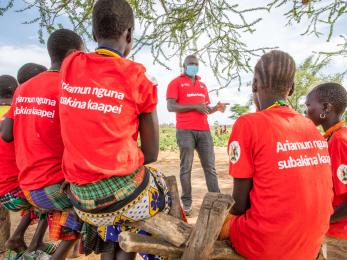Rapid Assessment: Dikwa and Ngala Local Government Areas, Borno State

Download the full assessment ▸
In January 2017 Mercy Corps conducted a rapid assessment in Dikwa and Ngala, two small towns in northern Borno State hosting over 120,000 displaced people between them. The purpose of this rapid assessment was to establish the severity and range of humanitarian needs of internally displaced persons (IDPs) and host community members in Dikwa and Ngala, and develop recommendations for programmatic responses in the two areas. Mercy Corps conducted the assessment over a two-day period in mid-January 2017. Given the time constraints, Mercy Corps opted for focus group discussions and key informant interviews as opposed to household surveys. Other agencies operating in the area collected extensive secondary information beforehand.
Highlights
None of the displaced people Mercy Corps spoke with has any immediate intention of returning home. This is mainly due to fear of attacks and lack of resources to rebuild their lives and livelihoods from scratch upon return.
- While we observed that the nutrition crisis appears to have stabilized in these locations thanks to humanitarian interventions, people still need assistance in covering all of their basic needs, including food (currently provided by WFP).
- Market activity is limited in Dikwa because no one has enough money. The situation in the town of Gambaru in Ngala is better, as markets are supplied from Fotokol, a nearby bustling border town in Cameroon. Cash is still limited and there are no operating banks, so many people must barter.
- While some IDPs have tents provided by humanitarian responders, the majority still live in makeshift shelters built of sticks, straw, mud, scraps and whatever else is available. Others have been taken in by host community members or are living in abandoned buildings, most of which are partially or fully destroyed and missing roofs, doors and windows.
- While the planting season is approaching in the coming months, most farmers have been unable to access their land due to continued insecurity. However, both Dikwa and Ngala have many hectares of land within their secured perimeters that could be used for cultivation, providing both food and employment. The farmers who own the land, however, need cash to buy tools, seeds and pumps for irrigation.


